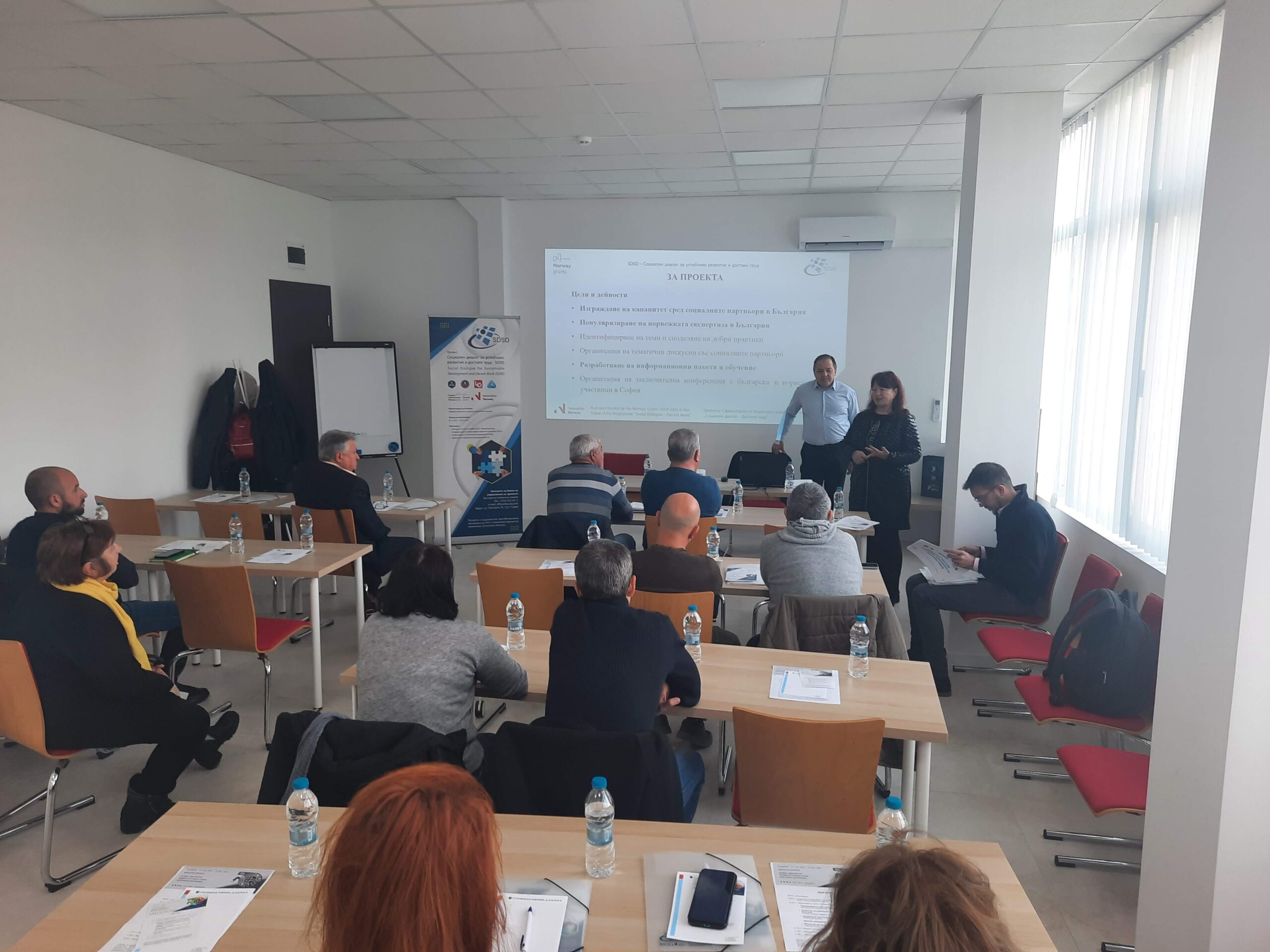Good practices from Norway in the field of the circular economy were presented at information events in Veliko Tarnovo and Dobrich, which were attended by representatives of local businesses.
The events were organized within the framework of the project “Social Dialogue for Sustainable Development and Decent Work – SDSD”, funded by the Norwegian Financial Mechanism (Innovation Norway). The project is implemented by the Bulgarian Industrial association (BIA) in partnership with the Confederation of Independent Trade Unions in Bulgaria (CNSB), the Norwegian Confederation of Trade Unions (LO) and the Confederation of Norwegian Enterprises (NHO).
To promote Norway’s experience, presentations were made on topics such as:
- Achieving the goals of the Green Deal – the example of Norway
- Norway’s Plastics Strategy
- Circular economy – good practice of Norwegian industry
- Food sustainability – Norwegian policy and experience
- Development of an ESG report
- The Norwegian Climate Action Plan
“Within the current project, we managed to identify various good models from Norway, which we believe can be applicable in the Bulgarian reality as well. These are models in the area of the circular economy, the strategy for plastics (in particular, single-use plastic products) and, of course, the European Green Deal,” shared Martin Stoyanov, project manager.
According to Vladimir Dimitrov, “Industry and Environment” expert at the Bulgarian Industrial association, the legislation – both in Europe and in Bulgaria – is too dynamic, which is worrying for the industry. “The business has just set up to work in one way, the next moment (in 2-3 years) it has to start working in another way, and the adaptation of the industry is a process that takes time. Therefore, the Norwegian experience was useful to us – looking through Norway’s eyes, we can much more clearly identify the problems in our country,” said Vladimir Dimitrov.
During the information meetings, the lecturers – experts with many years of experience in the field of environmental protection policies, answered numerous questions from the local business. The interest was primarily focused on the problem of purchasing industrial waste, incl. packaging waste, which especially in remote regions of the country (such as Dobrich, for example) is associated with high transport costs and this often discourages recycling companies from engaging in partnerships with regional businesses. Thus, the companies are put in front of the danger of being fined for not complying with the requirements for quantities of stored waste, and at the same time, they have no practical possibility for their disposal.
The participants of the events were presented with the developed educational packages for the purposes of sustainable development and green jobs.



